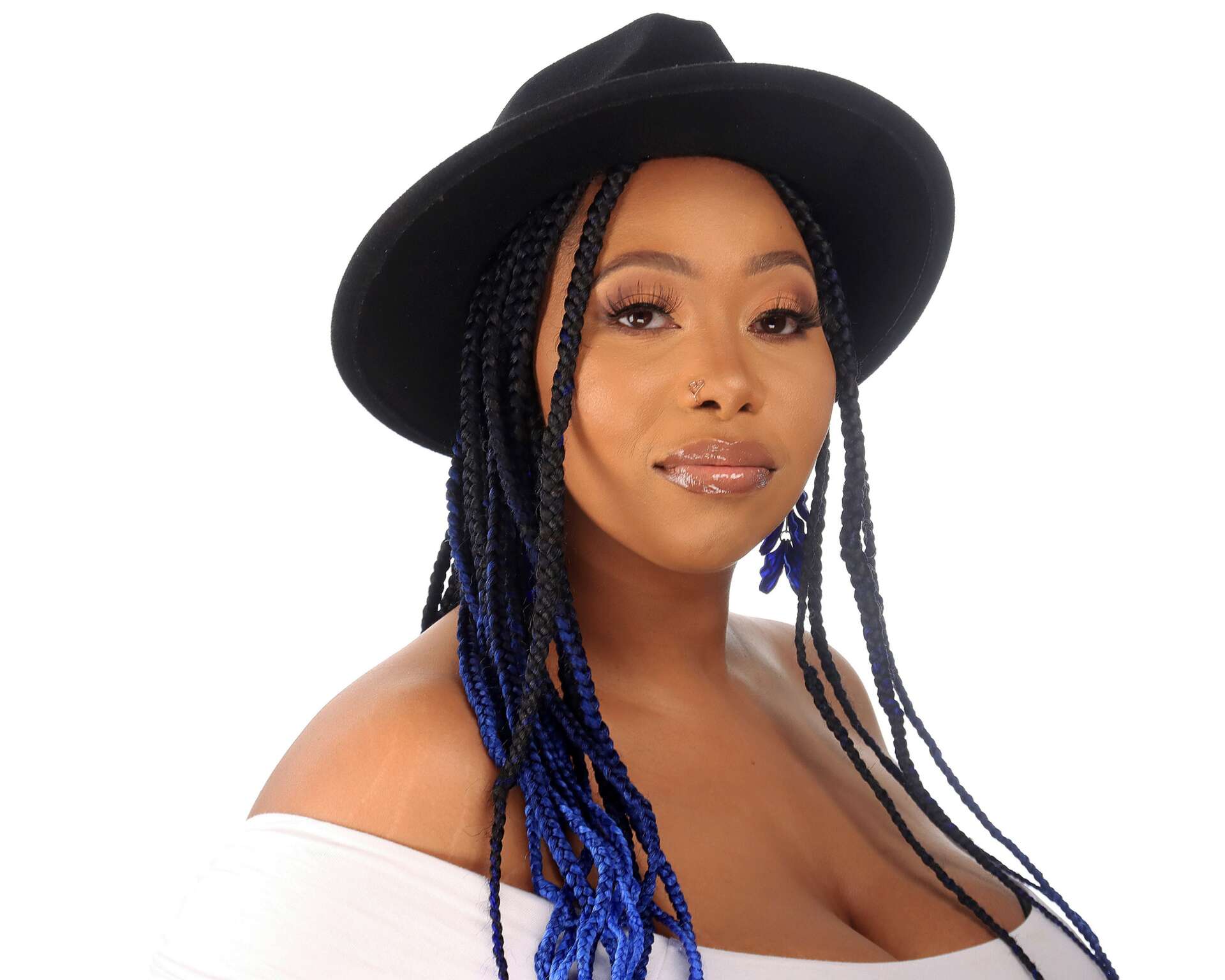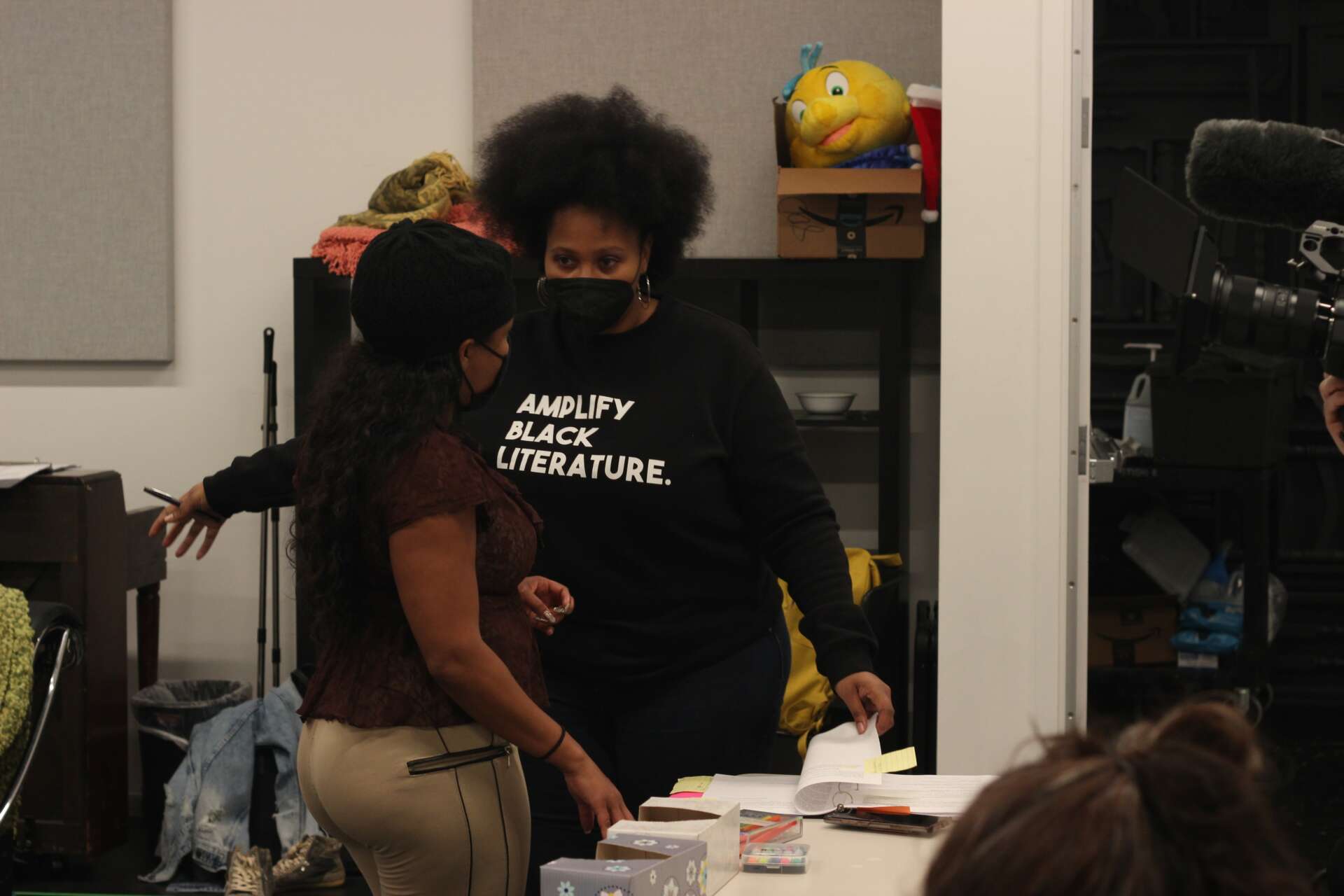We recently connected with Deborah D.E.E.P Mouton and have shared our conversation below.
Deborah, looking forward to hearing all of your stories today. Earning a full time living from one’s creative career can be incredibly difficult. Have you been able to do so and if so, can you share some of the key parts of your journey and any important advice or lessons that might help creatives who haven’t been able to yet?
Being a full-time artist was an absolute dream for so long. I tried it in my early twenties. But the life of crashing on people’s couches and floors while I lived out of a suitcase in and out of the US, quickly lost its luster. To really live and thrive as a full-time artist takes planning. I started working a full-time teaching job, gigging on the evenings and weekends. Then, the dynamics began to shift. I found myself having to take off time for work for special events, or managing business calls on my breaks and prep periods. At one point, while I was serving as the Poet Laureate, I remember having a camera crew come and meet me on campus in the parking lot. The scales started to shift in favor of my artistic career. I took a step back from the classroom, accepting a part-time position at a new campus. This made room for me to build connections and accept projects that were of a larger scale. After two years in that position, I had amassed enough money to fund my life for six months, With that as a safety net, and an upcoming residency, I felt more comfortable leaping into full artistry. This entire journey took just about five years, but only worked because I had an established net of relationships, possible collaborators, commissioners, and a financial pad that made room for me to ensure my career going forward. I also gave my self an “exit ramp”. This meant, a date where I was willing to return to a more traditional position if I was not maintaining my lifestyle. While it wasn’t what I wanted, t gave me measurable and quantifiable way to measure my risk. I think tis was the safest way for me to make the transition. While it did take a few years, having a family that depended on my income didn’t provide for many other options.

Deborah, before we move on to more of these sorts of questions, can you take some time to bring our readers up to speed on you and what you do?
I have been a writer my entire life. However, I didn’t begin to believe it was “my thing” until high school. My high school English teacher, Michelle McCurry, submitted my work to who’s Who and introduced me to my first poetry slam. I began to find my rhythm performing and winning local talent shows. My love for writing blossomed there, through college, and into a professional career. I launched my business, Deep Ink, at the beginning of 2021. Now I work creating plays, books, poems, songs, operas, etc. which all shine a light on societal issues, personal discovery, and diverse representation. Through my community organizing, I create festivals, events, and workshops that allow people to tap into and hone their voices. While there are many people who do what I do, I pride myself on having a unique approach that pulls my current loves and quandaries into a place where the community can engage with the work on a higher level. I had the honor of serving as the First Black Poet Laureate of the City of Houston, opened my first opera, and published my first book in the span of three years. This ability to transition between genres and projects is something, I believe, makes me special.
I believe that I am put on this earth to help dismantle literary racism and provide new spaces for people of color to break into and change the literary and theatrical communities. My current projects range from an upcoming film this summer, to a choreopoem, Plumshuga, that covers the life of trailblazing dancer Lauren Anderson this fall, to a brand new book, Black Chameleon, that launches in March, 2023 on Henry Holt and Co. I believe the only limitations we put on our creativity live in our own mind. If you have an idea, then you can achieve it. Just make a plan and push forward.
We’d love to hear a story of resilience from your journey.
As I was approaching graduating college, I struggled to decide what profession I wanted to chase. I assumed I would go back to California where I was raised, but I felt like God was leading me to a new place. After much prayer and consideration, I felt like Houston was the right place. However, I knew no one there, I had no job, and no friends or family. I tried to quiet the gnawing desire to move across the country. It seemed risky and I didn’t know what Houston held for me. But one summer morning, all of that changed. I heard my father’s voice from my door say the word “November”. Only when I got up to see where he was, he had left for work hours prior. I knew then that it was time to take the risk. I made a plan to move everything I owned to Houston that November. I lined up interviews and tried to find a place to stay on the internet. But without a job, I couldn’t prove that I had the income requirements to move.
When I arrived in Houston, every interview that I lined up fell through. I ended up spending a good portion of my savings sleeping in a hotel that showed me mercy and let me stay for half of the rate. But by the time the first month ended, I was running low on funds and options. I had just enough money to get me back to California or to afford the first and last month rent on an apartment. I didn’t want to return home. I felt like I was led to Houston for a reason and I still didn’t know what that was. I decided to live in my car for a few weeks until I could land a job. Fortunately a friend of a friend lived in the city and offered me a couch.
It took me another week to find a job. I was able to secure an apartment. Later, I met my husband here, had two beautiful children, and purchased a home. I look back on that crazy journey now and regret nothing. But in the moment it was risky. However, when you lead with your spirit and your gut, you can’t go wrong. And I think God honored my faithfulness in the ways He always knew everything would always work out.
In your view, what can society to do to best support artists, creatives and a thriving creative ecosystem?
Artists are the most unappreciated and necessary part of our community. In the pandemic, we watched people consume art, from TV to digital art, in mass amounts. However, most artists still struggle to make ends meet. I think there should be a wider variety of healthcare, tax breaks, and resource access for creatives. In addition, I also think many of the stigmas around the life of artists should change. Thinking is as much a part of an artists’ job as it is producing work. However, society puts all of the focus on the outward product. There is so much living that each creative must do to make art. I think valuing the less visibly-productive times and making space for self-care is crucial
Contact Info:
- Website: www.livelifedeep.com
- Instagram: @livelifedeep
- Facebook:livinglifedeep
- Linkedin: Deborah D.E.E.P. Mouton
- Twitter: @livelifedeep
- Youtube: livelifedeep
Image Credits
The action picture: Photo credit Tyler Rand, Taken at Stages Theater during the workshop for the upcoming choreopoem, Plumshuga. The headshot: Photo credit to Pin Lim


